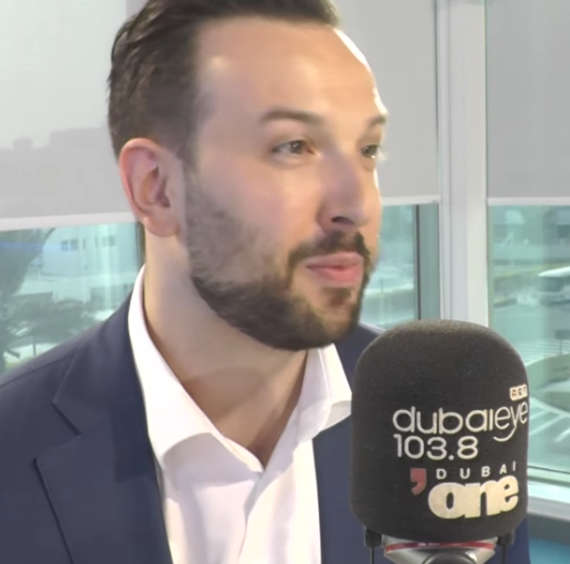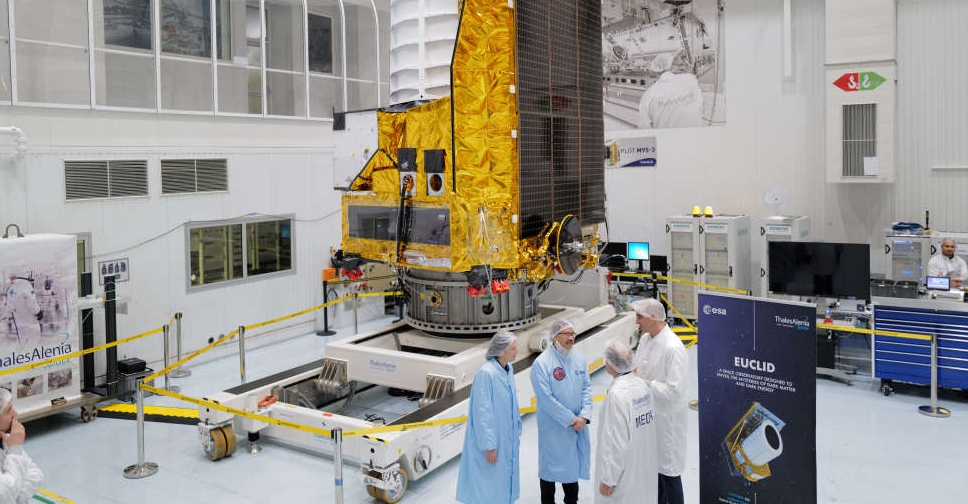
A SpaceX rocket in Florida stood poised for launch on Saturday carrying an orbital telescope built to shed light on mysterious cosmic phenomena known as dark energy and dark matter, unseen forces scientists say account for 95% of the known universe.
The telescope dubbed Euclid, a European Space Agency (ESA) instrument named for the ancient Greek mathematician called the "father of geometry," was bundled inside the cargo bay of a Falcon 9 rocket set for blast-off around 11 a.m. EDT (1500 GMT) from Cape Canaveral Space Force Station.
New insights from the $1.4 billion mission, designed to last at least six years, are expected to transform astrophysics and perhaps understanding of the very nature of gravity itself.
If all goes as planned, Euclid will be released after a short ride to space for a month-long voyage to its destination in solar orbit nearly 1 million miles (1.6 million km) from Earth - a position of gravitational stability between the Earth and sun called the Lagrange Point Two, or L2.
From there, Euclid is designed to explore the evolution of what astrophysicists refer to as the "dark universe," using a wide-angle telescope to survey galaxies as far away as 10 billion light years from Earth across an immense expanse of the sky beyond our own Milky Way galaxy.
The 2-ton spacecraft is also equipped with instruments designed to measure the intensity and spectrums of infrared light from those galaxies in a way that will precisely determine their distances.
The mission focuses on two foundational components of the dark universe. One is dark matter, the invisible but theoretically influential cosmic scaffolding thought to give shape and texture to the cosmos. The other is dark energy, an equally enigmatic force believed to explain why expansion of the universe, as scientists learned in the 1990s, has long been accelerating.
The possibilities of the mission are reflected by the enormity of Euclid's inquiry. Scientists estimate dark energy and dark matter together make up 95% of the cosmos, while ordinary matter that we can see accounts for just 5%.
Euclid was designed and built entirely by ESA, with the U.S. space agency, NASA, supplying photo detectors for its near-infrared instrument. The Euclid Consortium overall comprises more than 2,000 scientists from 13 European nations, the U.S., Canada and Japan.
A decade in the making, the mission originally was to have flown to space by way of a Russian Soyuz rocket. But launch plans were switched to SpaceX, the California-based venture of Elon Musk, after war erupted in Ukraine, and because no slot was immediately available from Europe's Arianne rocket program.
While the James Webb Space Telescope launched by NASA late last year allows astronomers to zero in on particular objects from the early universe with unprecedented clarity, Euclid is intended to expose the hidden fabric and mechanics of the cosmos by meticulously charting an enormous swath of the observable universe in 3-D, more than 1 billion galaxies in all.
Dark matter and dark energy cannot be detected directly, but their properties "are encoded in the shapes and positions of the galaxies," said astrophysicist Jason Rhodes, lead scientist for Euclid at NASA's Jet Propulsion Laboratory near Los Angeles.
"Measuring the shapes and positions of galaxies allows us to infer the properties of dark matter and dark energy," Rhodes said on Friday.
The data will be collected as Euclid maps the last 10 billion years of cosmic history across a third of the sky, gazing outward, and thus back in time, to an era of the universe astronomers call "cosmic noon," when most stars were forming.
Observing subtle but distinct changes in the shapes and positions of galaxies over vast spans of time and space will reveal fine variations in cosmic acceleration, indirectly exposing the forces of dark energy, scientists say.
Euclid also will help reveal the nature of dark matter by measuring an effect called gravitational lensing, which produces faint distortions in galaxies' visible shapes and is attributed to the presence of unseen material warping the fabric of space around it.
Through insights into dark energy and matter, scientists hope to better grasp the formation and distribution of galaxies across the so-called cosmic web of the universe.
Beyond Euclid's primary objectives, it will provide "a gold mine for all fields of astronomy for several decades," said Yannick Mellier, Euclid Consortium lead and astronomer at the Institut d'Astrophysique de Paris.



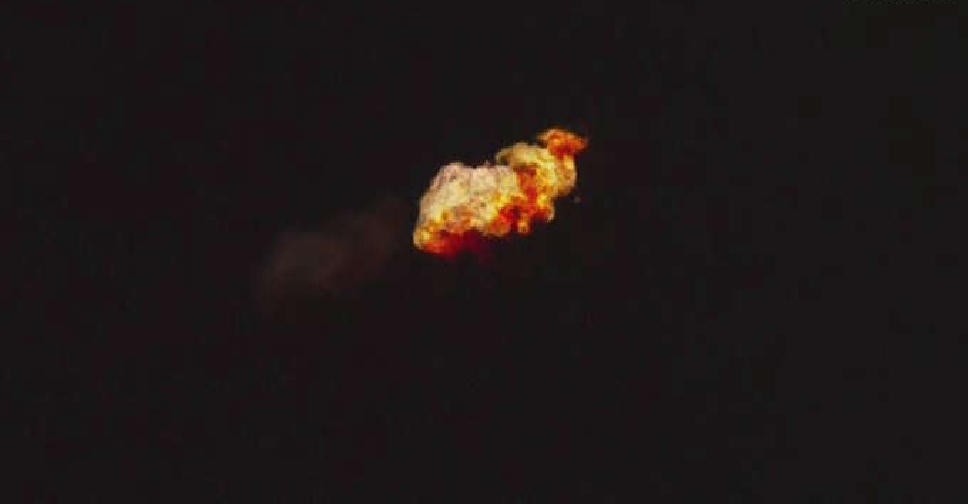 North Korea says latest satellite launch exploded in flight
North Korea says latest satellite launch exploded in flight
 Israeli attack on Rafah tent camp kills 45
Israeli attack on Rafah tent camp kills 45
 Over 2,000 could be buried in Papua New Guinea landslide, authorities say
Over 2,000 could be buried in Papua New Guinea landslide, authorities say
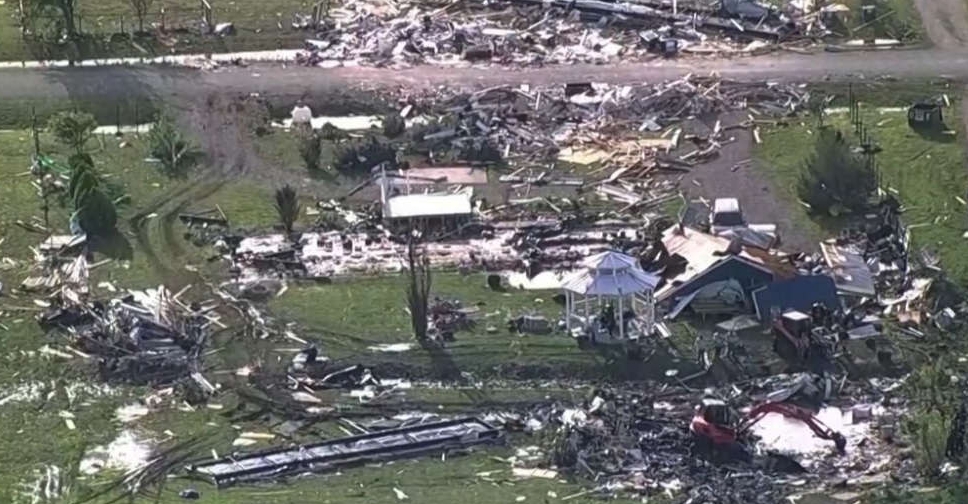 At least 18 killed in US storms
At least 18 killed in US storms
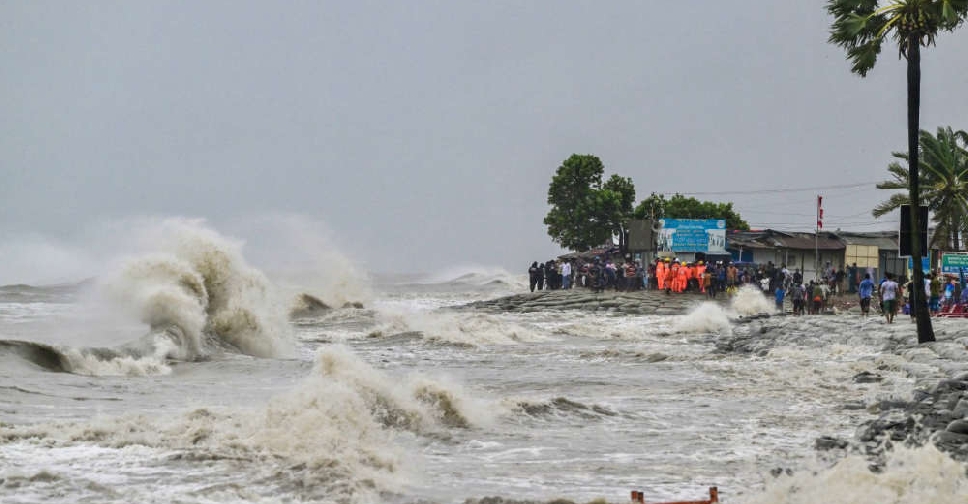 Cyclone Remal leaves millions without electricity
Cyclone Remal leaves millions without electricity






